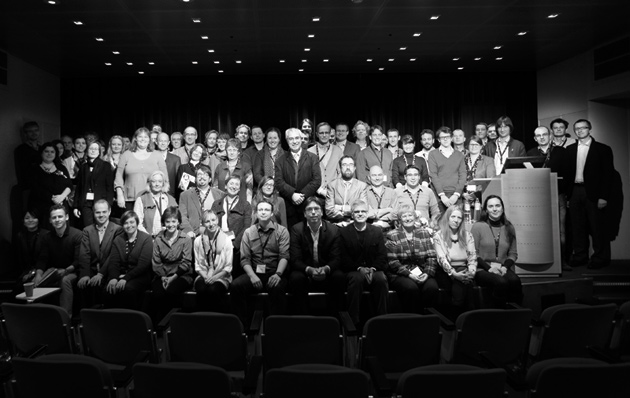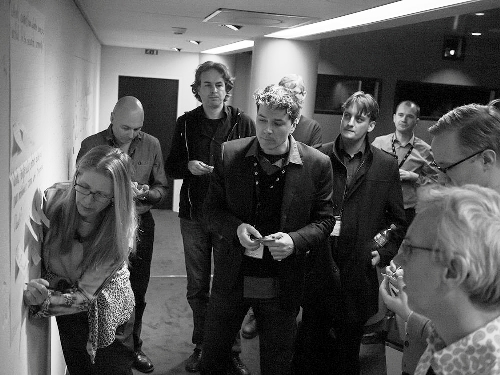Europeana Cloud Kicks Off Under Clear Skies
Blog by Friedel Grant (The European Library) and Susan Reilly (LIBER).
Despite its potentially inauspicious title, the kick-off of the Europeana Cloud project took place over two sunny and cloud-free days in The Hague.
This initial meeting on 4-5 March marked the official start of three years of collaboration between 35 partners. It is a diverse group, including representatives of libraries, research infrastructures, developers, publishers and researchers. They come from many different backgrounds but nevertheless share a common goal of establishing a cloud-based system for Europeana and its aggregators.

Partners at the Europeana Cloud kick-off meeting
The Europeana Cloud website describes the project’s goals as follows:
Content providers and aggregators across the European information landscape urgently need a cheaper, more sustainable infrastructure that is capable of storing both metadata and content. Researchers require a digital space where they can undertake innovative exploration and analysis of Europe's digitised content. Europeana needs to get closer to the target of 30 million items by 2015. Europeana Cloud meets these needs.
The kick-off meeting was opened by Europeana’s Executive Director, Jill Cousins. She introduced the Europeana ecosystem and outlined the drivers and motivations for establishing a cloud-based service to be used by Europeana and its aggregators.
Project coordinator Alastair Dunning followed this by describing the work of the project, its stakeholders and the challenges that need to be addressed over the course of the next three years. He also introduced the three initial aggregators which will provide content to the cloud: Europeana, The European Library and the Polish Digital Libraries Federation.

Generating ideas at the Europeana Cloud kick-off meeting
The main aim of the meeting was to encourage interaction and discussion between project partners, many of whom had not worked together before. Several workshops took place during the meeting and through these sessions, participants explored barriers to research, information access and collaboration.
They also identified solutions to these barriers, outlined the types of content that should be made available in Europeana Cloud and discussed the technical requirements of such an infrastructure.
There is much work to be done over the coming years in order to ensure that Europeana Cloud realises its potential and becomes a robust infrastructure, serving the needs of the humanities and social science researcher as well as the content provider. The first step is to engage researchers, in order to scope potential tools and services as well as gaps in content that need to be filled. Legal and technical issues will also arise and will need to be addressed. Work on this last point will be done through engagement and dialogue with related projects such as Europeana Creative.
Find out more about this project and its partners and see presentations from the kick-off meeting.
